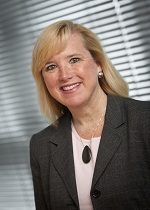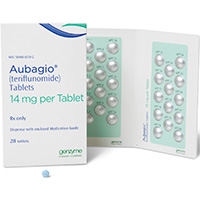An FDA snub is never welcome news for a drugmaker. But in the case of last winter's Lemtrada turn-down, Sanofi's ($SNY) Genzyme has found a silver lining.
 |
| Carole Huntsman, Genzyme VP and MS business unit head |
"In terms of how we market the product and how we'll market the product logistically, it gave us more time to work on our plans," Carole Huntsman, Genzyme VP and MS business unit head, told FiercePharmaMarketing. And the company sees those plans helping it take its multiple sclerosis franchise to the next level amid a wealth of competition.
For starters, Genzyme is fielding an extensive provider-and-patient support program, developed based on feedback from a range of stakeholders. A legion of "thought leader liaisons" is responsible for coordinating Genzyme activity at 220 top MS treatment centers in the U.S., providing a point of contact for questions about Lemtrada.
Medical liaisons will answer any science-based questions. And the support folks can help medical staff and patients navigate the Risk Evaluation and Mitigation Strategies (REMS) required by the FDA when Lemtrada was approved.
But it doesn't end there. Genzyme is also fielding infusion support managers, most of them nurses. They're charged with training staff at MS centers and outpatient clinics not only to administer Lemtrada properly, but also to work with the REMS guidelines. Business relations managers will help healthcare providers with access and procurement. And there's MS One to One, a program that provides every MS center with a site manager who can provide educational info about the drug and answer questions about getting patients enrolled in the REMS. Patients each have a nurse assigned to them whom they can call 24 hours a day.
Genzyme is hoping those tools--in addition to positive trial data, some forthcoming DTC efforts and a sales force "similar in size" to those for other infused MS treatments--will help it take on head-to-head competitor Rebif, the Merck KGaA stalwart that raked in $2.5 billion in 2013 sales.
 |
After all, the Sanofi unit's last MS launch--for oral therapy Aubagio--struggled to live up to the rollouts of its rivals. Biogen Idec's ($BIIB) Tecfidera hauled in almost $2 billion for the first 9 months of 2014, its first full year on the market, while Novartis' ($NVS) Gilenya put up $1.8 billion in sales over the same period. And Aubagio? It trailed significantly, managing just $378 million during that span.
But according to Huntsman, that extra time from the FDA delay could make all the difference. In contrast with the Lemtrada staff, the Aubagio team came together "really quickly" before the product's FDA approval, she said. And for the new product, "while we would not have chosen this way, it gave us more time to … make sure we were really considering all the needs of the MS community."
Special Reports: Top 10 best-selling multiple sclerosis drugs of 2013 - Aubagio - Rebif - Gilenya - Tecfidera | Top 15 drug launch superstars - Tecfidera - Gilenya